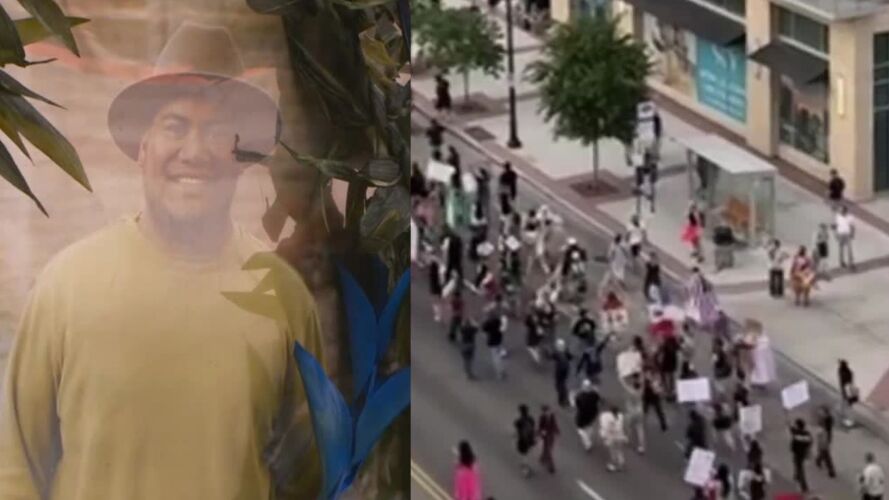SALT LAKE CITY — Over a month after a bystander was fatally shot while participating in the "No Kings" protest in downtown Salt Lake City last month, police have formally presented their case to the office of the Salt Lake County District Attorney.
District Attorney Sim Gill said the case was given to his office on July 2, but a new request was made of detectives after prosecutors reviewed the evidence presented by police. Gill did not detail what prosecutors were looking for in the additional request.
In a statement Wednesday, Gill added that no determination has been made on whether charges will be filed against anyone involved in the incident that killed Arthur Ah Loo.
“As of this moment, Salt Lake City Police Department has formally presented the case to our office, but the investigation is not complete," Gill said. "As with many investigations referred to the Salt Lake County District Attorney’s Office, there is follow-up work to be done. This continues to be an open case without any formal conclusions at this stage of the proceedings.”
'Peacekeeper' connected to protest shooting was volunteer, military veteran, organizers confirm:
Police also reiterated that they usually have no input on whether charges will be filed in any case.
"In this particular case, the SLCPD did not offer a charging recommendation but instead presented our initial investigative findings to the Salt Lake County District Attorney’s Office for review and determination," said police spokesperson Brent Weisberg.
On June 14, nearing the end of what had been a relatively peaceful march downtown, shots rang out, with fashion designer Ah Loo being fatally hit by gunfire, and a suspect, Arturo Gamboa, taken into custody without firing a shot.
New video of Salt Lake City protest shooting appears to contradict police:
In the days following the shooting, it was revealed that a volunteer "peacekeeper" hired by protest organizers to act as security had fired at Gamboa, who was legally carrying an AR-15 during the protest.
Gamboa was released from jail six days after his arrest when Gill's office determined that it would be unable to make an "informed decision" on whether charges should be filed before a deadline in which Gamboa would need to be set free.




